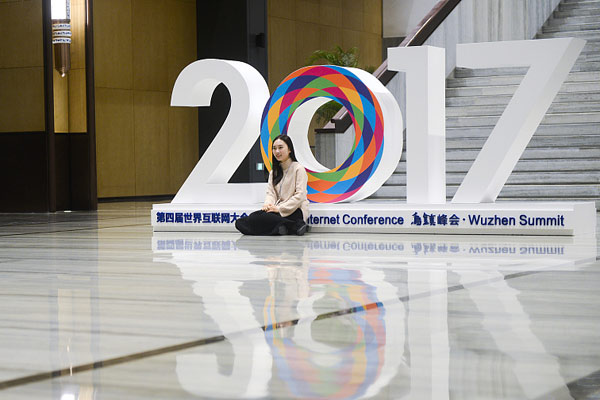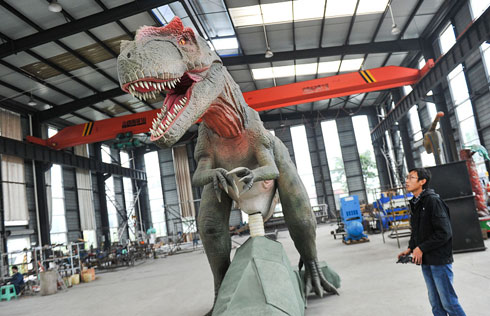

BEIJING -- China has vowed to use a multi-pronged approach to tackle the country's air pollution which is increasingly a public concern, according to a government action plan unveiled on Thursday.
China will cut coal use, close polluters and promote cleaner production in a bid to clean up the air, under the plan, which analysts say shows the government's anti-pollution resolution.
Less coal use
China will increase clean energy supply and use and further cut consumption of coal, which supplies most of the country's electricity needs and remains a major source of air pollutant emission.
China aims to cut its total coal consumption to below 65 percent of its total primary energy use by 2017, part of the country's efforts to accelerate adjusting its energy structure, says the plan, posted on www.gov.cn.
New projects set to be constructed in the Beijing-Tianjin-Hebei region and both the Yangtze Delta and the Pearl River Delta regions will be banned from setting up their own coal-fired power plants, it says.
China will boost supply of natural gas, coal-based substitute natural gas and coal-bed methane, according to the plan.
By 2015, the country's newly-increased capacity of transporting natural gas via pipelines will total more than 150 billion cubic meters, covering the Beijing-Tianjin-Hebei region and both the Yangtze and Pearl River delta regions.
Under the plan, by 2017, the total capacity of China's nuclear power reactors in operation will reach 50 million kilowatts, and the share of non-fossil fuel energy will be raised to 13 percent in overall primary energy use.
China is eyeing a roughly 20-percent cut in energy consumption per unit of industrial value added by 2017, compared to 2012, says the plan.
Less pollutant sources
The government said combined heat and power plants will gradually replace decentralized coal-fired boilers in industry clusters of chemical engineering, papermaking, dyeing and tanning for the sake of emissions cuts.
China will quicken construction of desulfurization, denitrification and dedusting facilities in coal-fired plants, steel mills and cement plants, it added.
The plan calls for technological upgrades at refinery enterprises to improve the quality of fuel oil, which affects vehicle emissions.
The government aims to clear heavy-polluting "yellow-label" vehicles from roads across the country by 2017.
As part of a broader air pollution campaign, China will promote the transformation and upgrading of industries, and further tighten control over high-polluting and energy-intensive industries.
Greater efforts will be made to eliminate outdated production capacity in the sectors of iron and steel, cement, electrolytic aluminum and flat glass, the plan says.
An original target set for 2015 to close outdated production capacity in key industrial sectors will be achieved by 2014, it adds.
Heavier penalties will be imposed for violations of environmental, energy conservation and safety requirements, while energy conservation and environmental protection standards will be strictly implemented to support the phasing out of excess production capacity.
 4th World Internet Conference concludes
4th World Internet Conference concludes
 Starbucks Reserve Roastery set to open in Shanghai
Starbucks Reserve Roastery set to open in Shanghai
 Smile to get discounts in Tmall's unmanned supermart
Smile to get discounts in Tmall's unmanned supermart
 Top 10 richest Chinese women in 2017
Top 10 richest Chinese women in 2017
 World leading internet sci-tech achievements released in Wuzhen
World leading internet sci-tech achievements released in Wuzhen
 Top tech CEOs take to the stage as Wuzhen Summit opens
Top tech CEOs take to the stage as Wuzhen Summit opens
 Major topics at 4th World Internet Conference
Major topics at 4th World Internet Conference
 'Made in China' dinosaurs amuse the world
'Made in China' dinosaurs amuse the world